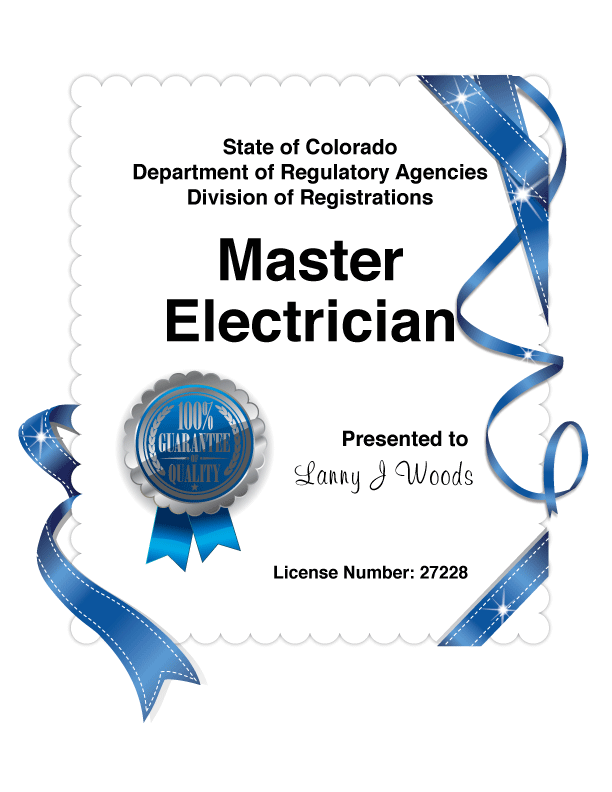
Electricians in Daytona Beach, FL, install, maintain, and repair electrical systems in residential, commercial, and industrial buildings. This includes working with power distribution systems, lighting, heating and air conditioning, fire safety systems, and renewable energy installations1. For more resources on electrical careers, check out Electrical School, where you can find additional training details. Electricians may also be involved in reading blueprints, troubleshooting electrical problems, and ensuring compliance with the National Electrical Code and local regulations2.


Electricians in Daytona Beach can work in:
Yes, electricians in Daytona Beach must obtain either a Registered Electrician (ER) License or Certified Electrician (EC) License to work legally. The ER license is issued by local Construction Trades Qualifying Boards and is valid only within designated jurisdictions like Volusia County where Daytona Beach is located. The EC license allows statewide work and is issued by the Florida Department of Business and Professional Regulation (DBPR)34. For official licensing information, visit the Florida DBPR website.
To qualify for either license, applicants must:
Continuing education requirements include 11 hours every two years to maintain licensure5.
There are two primary apprenticeship pathways to becoming an electrician in Daytona Beach:
Sponsored by IBEW Local 756 and Daytona Beach Electrical JATC, this five-year apprenticeship combines paid work experience with evening classroom instruction. It's ideal for those interested in inside wireman, commercial, and light industrial work1.

Eligibility requirements:
Offered by the Advanced Training Center and Daytona State College, this program requires 8,000 hours of on-the-job training and 792 class hours over multiple years. Classes are held at the College's Advanced Technology Center in Daytona Beach78. For insights on job opportunities, reference Electrical Jobs in Daytona Beach.
Admission requirements:
| Feature | Union Apprenticeship | Non-Union Apprenticeship |
|---|---|---|
| Duration | 5 years | 4 years typically |
| Structure | Paid work + classroom | On-the-job + classroom |
| Location | Daytona Beach Electrical JATC | Advanced Technology Center |
| Certification | Journeyman electrician | Journeyman electrician |
| Start Date | Variable | Typically Fall semester |
| Sponsoring Organization | IBEW Local 756 & JATC | Daytona State College |
To begin an electrical trade career, you must:
Choose between the IBEW union apprenticeship or Daytona State College non-union program. Both paths combine classroom instruction with hands-on training, preparing learners for various roles in the electrical trade3.
Both apprenticeships require completing 8,000 hours of electrical work experience (about four years) and classroom instruction covering electrical theory, application, safety, and project management4.
Before starting an apprenticeship, pass the standardized industry aptitude test. Then prepare for the journeyman electrician certification exam issued by local municipalities10.
After completing the apprenticeship and required experience, apply for journeyman electrician license from Florida's local Construction Trade Qualifying Board2.
The electrical trade career in Daytona Beach offers competitive compensation:
Compared to the state average, Daytona Beach electricians earn slightly higher wages, with average hourly salaries of $25.96 to $26.0632. While major Florida cities like Miami and Tampa may offer potentially higher compensation due to larger populations and more diverse industries, Daytona Beach remains a competitive market for electrical professionals.
The electrical trade in Daytona Beach faces several challenges influenced by technological and regulatory developments:
| Challenge Type | Key Issues |
|---|---|
| Regulatory Changes | National Electrical Code updates, local building regulation changes requiring ongoing training |
| Technological Advancements | Smart home systems integration, renewable energy installation requirements, advanced diagnostic tool proficiency |
| Market Changes | Wide hourly pay range (from $19 to $31), need for continuous skill development, competitive demand from various industries |
To keep pace with these changes, electricians must maintain flexibility and adaptability while embracing new technologies and maintaining up-to-date certifications2.
Daytona State College serves as the primary educational resource for electrical trade training:
While there are no technical colleges directly in Daytona Beach beyond Daytona State College, nearby institutions like Okaloosa Technical College in Ft. Walton Beach offer complementary training options2.
Starting a career in electrical trades in Daytona Beach opens opportunities for stable employment in a growing field. Whether you're just finishing high school or considering a career change, following these steps will set you on the path to success:
To find electrical apprenticeship opportunities in Daytona Beach, check available positions on Gild's electrical job feed or directly through platforms like Indeed electrical jobs in Daytona Beach.
https://tradecareerpath.com/trades/electrician/florida/union/IBEW-Local-756 ↩ ↩2
https://www.prairielectric.com/electrician-careers/electrician-job-outlook/ ↩ ↩2 ↩3 ↩4 ↩5 ↩6 ↩7
https://www.indeed.com/q-electrical-l-daytona-beach,-fl-jobs.html ↩ ↩2 ↩3 ↩4 ↩5 ↩6
https://www.glassdoor.com/Job/daytona-beach-electrician-jobs-SRCH_IL.0,13_IC1154028_KO14,25.htm ↩ ↩2
https://www.indeed.com/q-electrician-l-daytona-beach,-fl-jobs.html ↩ ↩2 ↩3 ↩4
https://www.daytonastate.edu/academic-departments/mary-karl-college-of-workforce-and-continuing-education/school-of-workforce/electrical-apprentice-union.html ↩
Daytona State College - Electrical Apprentice - Non-Union ↩ ↩2
https://www.daytonastate.edu/academic-departments/mary-karl-college-of-workforce-and-continuing-education/school-of-workforce/electrical-apprentice-non-union.html ↩
https://www.ziprecruiter.com/Jobs/Energy-Electrician/-in-Daytona-Beach,FL ↩ ↩2

